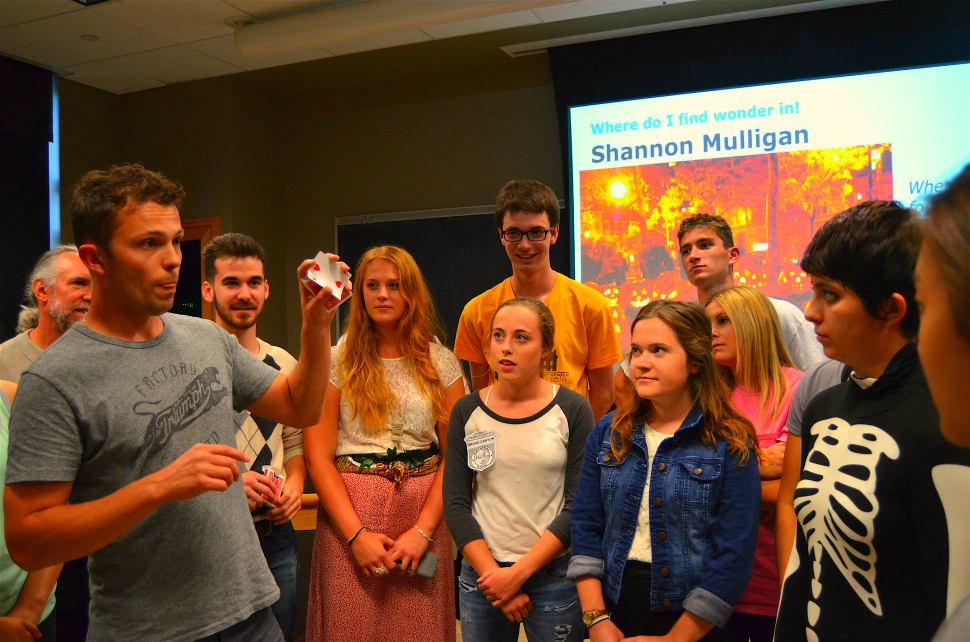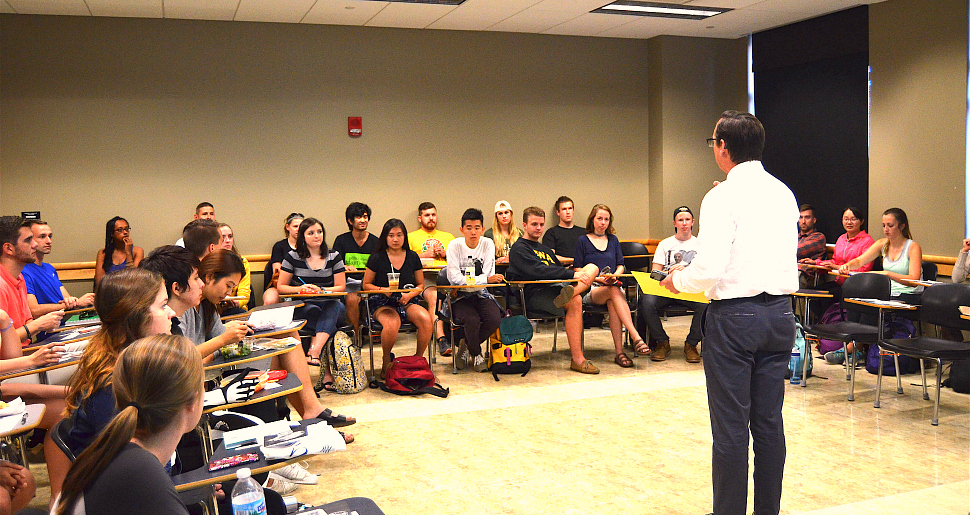John Tolley, October 1, 2016
As David Gould sees it, colleges and universities just aren?t asking students the right questions anymore.
?I believe that we are drifting away from the larger eternal questions that students used to ask when they came to a place like this,? says Gould, administrator for the Belin-Blank Center for Gifted Education and Talent Development at the University of Iowa. ?[These were] the kinds of things that helped them figure out who they were and what they wanted to do in this world.?
According to Gould, the modern higher education model has become too myopically focused on career placement; strongly encouraging young people to pick a major - and a practical one to boot - almost immediately. It?s a model that Gould thinks robs students of ?the tremendous opportunity of being in your twenties and prototyping what it means to live a meaningful life.?
Enter the Green Room, a new University of Iowa Honors Program course devised by Gould that marks a return to the probing, self-analytical discourse of a bygone era.
?In the Honors program vision statement here at the University of Iowa is the notion of self-discovery,? Gould notes. ?I spent some time interviewing our Honor students last spring. I did focus groups after that to begin to have conversations with them around these ideas.?
The Green Room, which meets once a week, is a forum for discussion for the 30 Honors students who make up the inaugural offering. A series of questions, one per meeting, provide structure for the class. The questions are posed by a rotating lineup of guests that have included an activist, a CEO, a storyteller and a magician to name a few.
?Each one of them brings a question that is informed from their life,? explains Gould. ?It is the most important question to them that they believe twentysomethings in college would be struggling with, and that higher education should be helping to inform.?
Students, broken into groups of five, curate each class, reading and studying as much as they can about their guest. They facilitate the guest?s program, lead discussion, and create a unique homework assignment surrounding the weekly question.
?We had a magician [Nate Staniforth] and his question was ?Where do you find wonder??? says Gould. ?Students sent in photos and explanations of what was a wonder to them when they were children and how it connected to their lives today.?

The Green Room is also centered on the concept of students, guest, and teacher breaking bread together, as Gould believes that there is something that is not only conducive, but magical, about sharing a meal.
?If I were to ask you about your favorite meal, my guess is you didn?t eat alone,? Gould postulates. ?My guess is that probably you were with somebody you cared about; you probably had a wonderful evening of discussion.?
This has all led to a level of student engagement that has pleasantly surprised Gould. Frequently, he says, students and guests will linger long past the designated end of the class, continuing the conversation.
?When you turn a classroom into a place that A) the students have some authorship, B) where they are investigating information that truly matters to them, and, C) they are exploring in artistic, meaningful ways, it?s pleasing to see just how intrinsically motivated they are.?
While the class is limited to 30 slots and exclusively Honors students, Gould keeps an open door to members of both the University of Iowa and Iowa City communities. The class size has, at times, swelled to as many as 50 participants, from student?s roommates and family members to local educators.
The Green Room, Gould is quick to note, is very much an experiment, but one in which he is learning alongside his students.
?I?m very interested in rethinking what education can look like,? says Gould. ?I?m very interested in how this experience that we offer can be more meaningful, more beneficial to students and the lives they are going to live. How can we make them better citizens? How can we make them better parents, better neighbors? How can we help them find the things that they are passionate about and help them turn it towards a larger world and how can education play a role in that? That is interesting to me.?







